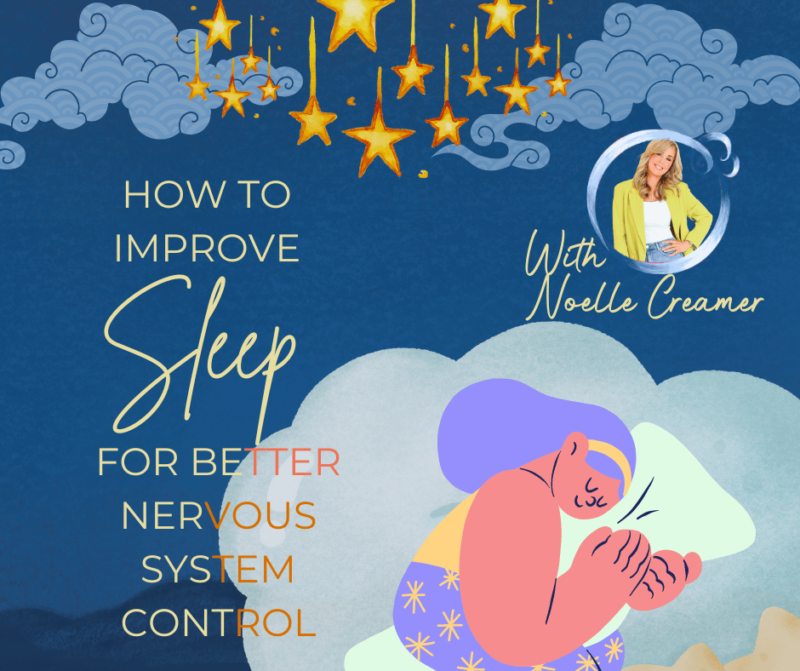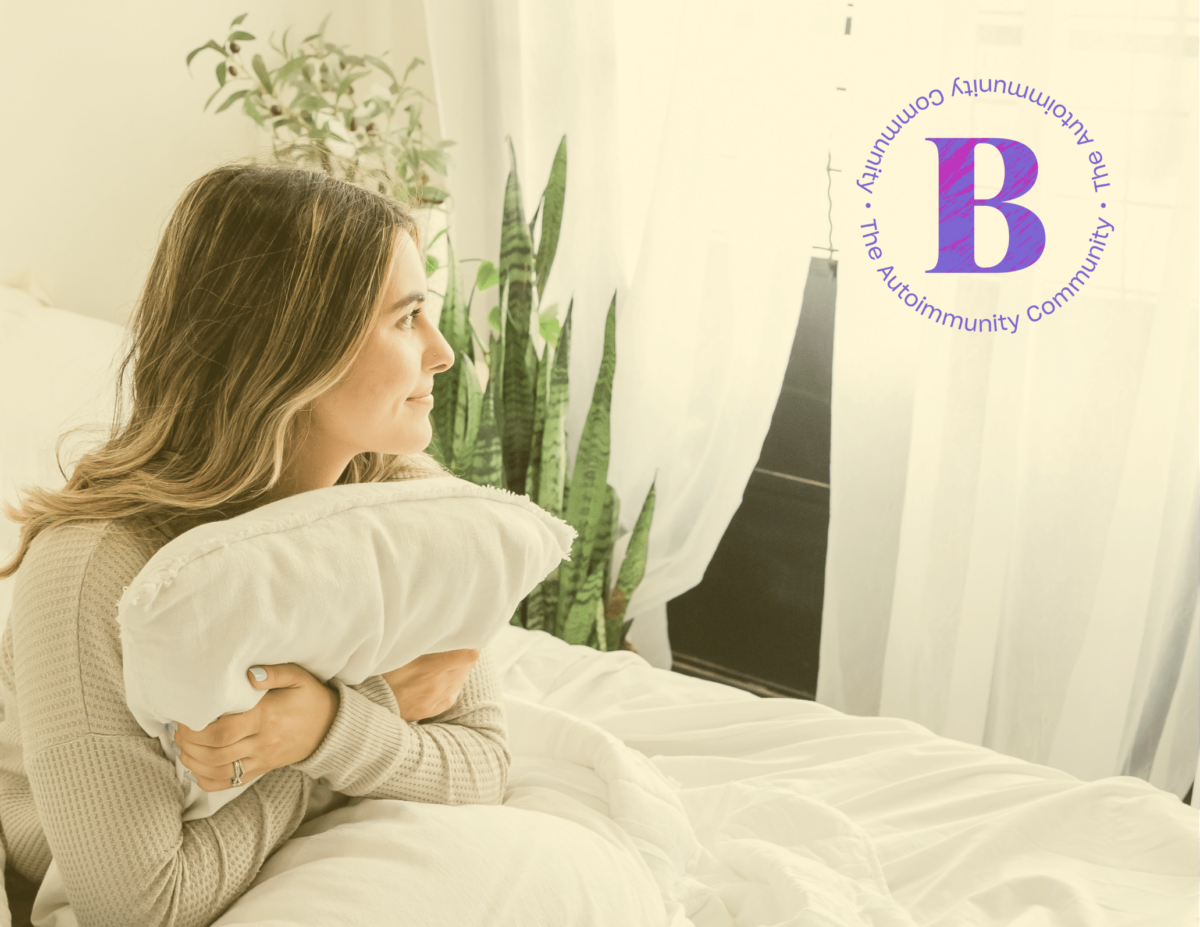
Sleep Quality, Nervous System Function, and Autoimmune Health
Imagine your body as a bustling metropolis, where sleep functions as the essential nighttime maintenance crew, ensuring everything operates smoothly for the nervous system, akin to a city’s infrastructure. The critical role of sleep in maintaining and rejuvenating the nervous system cannot be overstated; it acts as a reset button, clearing mental clutter and repairing daily wear and tear.
Reflecting on your own sleep quality is crucial, as a good night’s sleep is not merely a luxury but a necessity for the well-coordinated operation of our body’s complex network of activities.
So, how has your sleep been lately??
Think about it – this question isn’t just casual small talk; it’s a key to understanding and improving the intricate relationship between sleep quality and nervous system function.
The Nervous System & Its Impact on Autoimmune Health:
The nervous system is the internet of your body, a vital network ensuring seamless communication across all bodily functions. It’s what allows your brain to send quick “emails” or “text messages” to various body parts, coordinating everything from movement to digestion.
This comparison underscores the nervous system’s role as the ultimate controller, essential for maintaining harmony and efficiency within our bodies. It acts as a central command center, constantly communicating with all parts. This communication is crucial for regulating the immune system, which normally protects us from germs, viruses, and other disease-causing organisms.
Within this vast network, the central and peripheral nervous systems work together like a dynamic duo, ensuring information flows smoothly from the brain and spinal cord to every part of the body.
But when this communication breaks down, it can contribute to the emergence of autoimmune diseases such as Multiple Sclerosis (MS) and Guillain-Barré syndrome (GBS). Without proper communication, the immune system can become confused and start attacking healthy tissues, leading to a host of issues that could affect our daily lives and overall health.
When autoimmune diseases strike, disrupting this communication, it can have profound effects on the body’s ability to function properly. Understanding and maintaining the health of this “internal internet” through proper sleep is crucial for preventing and managing autoimmune conditions, highlighting the interconnectedness of our nervous system’s health and our overall well-being.
Sleep’s Role in Nervous System Regulation
Think of sleep as the essential reset button for our nervous system, akin to rebooting a computer to enhance its performance. Through the dynamic interplay of REM and non-REM stages, sleep facilitates critical processes like cell repair, memory consolidation, and toxin removal, ensuring the nervous system operates optimally.
Non-REM sleep sets the stage for physical restoration, while REM sleep engages in mental housekeeping, processing emotions and reinforcing learning. This nightly reboot not only clears the day’s mental clutter but also bolsters the brain’s plasticity (neuroplasticity), ensuring cognitive agility and resilience. In essence, prioritizing sleep is crucial for maintaining the health and functionality of our nervous system, acting as a cornerstone for both mental and physical well-being.
Recent advancements in brain plasticity research highlight the brain’s remarkable ability to reorganize itself through new neural connections, influenced significantly by sleep, technological interventions, and lifestyle factors.
Studies emphasizing the role of deep non-REM sleep in enhancing memory and learning underscore sleep’s critical impact on neuroplasticity. Technological approaches like transcranial magnetic stimulation (TMS) and direct current stimulation (tDCS) show promise in improving cognitive functions and aiding recovery from neurological conditions.
Additionally, the beneficial effects of physical exercise and certain diets on brain health, through the production of brain-derived neurotrophic factor (BDNF), suggest lifestyle choices play a vital role in promoting neural growth and reorganization.
These insights are paving the way for innovative treatments and cognitive enhancement strategies, leveraging the brain’s adaptability for improved health and function. How exciting and empowering is that?!
Why You Shouldn’t Snooze on Quality Zzz’s
Let’s face it, skipping out on sleep might seem like a good idea when you’re binge-watching your favorite series or scrolling through social media. But, here’s a thought to consider: imagine your body as the setting for a zombie apocalypse when you don’t get enough sleep. That’s right, a full-blown, groaning, stumbling mess where:
- Brain Cells: These guys turn into the walking dead, forgetting what they were doing mid-thought and leaving you hanging in conversations.
- Mood Monsters: Without enough shut-eye, they roam free, swinging from irritable snaps to unexpected sobs.
- Memory Munchers: Say goodbye to remembering where you put your keys or what you were supposed to buy at the store.
Now, let’s get real about the not-so-funny effects of sleep deprivation:
Mood
Lack of sleep can turn anyone into a mood monster, leading to irritability, anxiety, and even depression. It’s like playing emotional roulette every day. Here’s what actually happens…
When sleep becomes scarce, our brain and body systems undergo significant stress, impacting our emotional and psychological well-being in profound ways.
Neurotransmitter Balance
Sleep is crucial for regulating neurotransmitters, the brain’s chemical messengers, including serotonin and dopamine. These chemicals are pivotal in controlling our mood and emotions. Lack of sleep disrupts their balance, leading to feelings of irritability, anxiety, and even the onset or worsening of depression. It’s akin to trying to drive a car when the engine’s warning lights are flashing; everything might seem functional on the surface, but there’s an underlying problem threatening to cause a breakdown.
Stress Hormones
Sleep deprivation triggers an increase in the body’s production of stress hormones, such as cortisol. Under normal circumstances, cortisol levels follow a daily rhythm, peaking in the morning and decreasing at night. However, insufficient sleep keeps these levels elevated, putting the body in a state of heightened stress and alertness. This makes it harder to relax and can perpetuate a cycle of stress and insomnia, turning every minor inconvenience into a potential emotional meltdown.
Amygdala Reactivity
The amygdala, a part of the brain involved in processing emotions, becomes more reactive under sleep deprivation. This heightened reactivity can lead to exaggerated emotional responses to both negative and positive stimuli. Essentially, without enough sleep, the brain’s emotional gas pedal is stuck on, making it difficult to navigate the normal ups and downs of daily life with balance and perspective.
Prefrontal Cortex Function
Sleep deprivation impacts the prefrontal cortex, the brain’s rational part that tempers emotional responses. When you’re well-rested, the prefrontal cortex acts as a brake on the amygdala, helping you respond to situations with a mix of emotion and logic. Lack of sleep weakens this control, making it harder to make reasoned decisions and keep emotions in check, leading to impulsivity or snap judgments.
Memory
Your brain’s ability to consolidate memories becomes as effective as a sieve holding water. Both short-term recall and long-term consolidation take a hit, making exams, presentations, or just daily tasks more challenging. We’ve all been there at some point in our lives. Let’s get into the science behind this without putting you to sleep (literally):

Picture your brain as this ultra-cool, multitasking DJ at the club of your mind, spinning different tracks through the night. These tracks? They’re the stages of your sleep, each with its own vibe and purpose.
First up, we’ve got the slow-wave sleep (SWS), dropping the beats in the early part of the night. This is when your brain decides to archive all the random facts and info you’ve encountered throughout the day. Think of it as saving your selfies and food pics in a digital album labeled “Declarative Memories.”
Then, as the night progresses, we switch to the REM stage—the part where your brain rehearses the dance moves or, in our case, skills and tasks you’ve learned. It’s like practicing a TikTok dance in your dream so you can nail it when you’re awake. Skipping on sleep means the DJ leaves the booth mid-party, leaving these tracks unplayed and your memories kind of in limbo.
Now, for the connections between your brain cells to get really tight, they need to vibe together during these sleep stages, especially REM. Imagine your brain cells sending snaps to each other to reinforce their bond. Miss out on sleep, and it’s like having a weak Wi-Fi signal; the snaps don’t go through, leading to foggy memories.
And here’s where the brain’s chemical cocktail comes into play. Sleep tweaks the levels of stuff like acetylcholine, which is basically the brain’s version of an energy drink for forming and storing memories. Mess with your sleep, and it’s like the brain’s energy drink got swapped with decaf—no buzz, no memory boost.
Lastly, let’s talk about the hippocampus—that’s the brain’s storage unit for all the new stuff before it gets shelved permanently. Robbing yourself of sleep is like asking this storage unit to work after pulling an all-nighter. Not happening. Plus, with the brain already on overload from lack of rest, focusing on anything new feels as doable as texting with your phone’s autocorrect going haywire.
Overall Health
The consequences here are far-reaching, including weakened immunity (hello, every cold and flu), increased risk of serious health conditions (heart disease, diabetes), and even weight gain. To learn more about the systemic effects of sleep deprivation, download a copy of our infographic HERE.
So, if you’re tempted to trade sleep for just one more episode or scroll, remember the zombie apocalypse waiting to unfold inside your body. Embracing quality Zzzs as part of your healthy mindset isn’t just about avoiding the groggy, forgetful, and cranky consequences; it’s about safeguarding your mood, memory, and overall health. Don’t let the bedbugs bite, or worse, the sleep-deprivation zombies!
Sleep’s Role in Disease Prevention and Management
Recent studies have cast a spotlight on the profound link between sleep and a reduced risk of neurological diseases. For instance, research published in reputable medical journals suggests that adequate sleep may play a preventative role against Alzheimer’s disease. The mechanism? Sleep helps in clearing beta-amyloid, a brain-clogging protein associated with Alzheimer’s, from the brain. This cleansing process, often likened to a nocturnal detox, underscores the importance of uninterrupted sleep in maintaining neurological health and warding off cognitive decline.
The tales of sleep’s protective powers don’t end with neurological health; they extend to the realm of autoimmune diseases. Sleep plays a pivotal role in regulating the immune system, offering a double-edged sword of enhancing the body’s defense mechanism while keeping the autoimmune responses in check.
Studies have shown that adequate sleep can help modulate the immune system, reduce inflammation, and potentially decrease the severity of autoimmune reactions. For individuals with autoimmune diagnoses, such as rheumatoid arthritis or multiple sclerosis, quality sleep becomes a cornerstone of their healing and well-being strategy. It not only helps in managing symptoms but also supports overall immune resilience.
As you can tell, the stakes are pretty high under the sheets. So, what can we do to get the most out of our sleep?? Here’s what BrightlyThrive™’s co-founder a.k.a our resident sleep princess, Noelle Creamer, has to share.

How to Improve Sleep for Better Nervous System Control by AIP Certified Coach Noelle Creamer of BrightlyThrive™
- Expose Yourself to Morning Sunlight
Noelle starts her day by embracing the morning sunlight, a natural signal to her body that it’s time to start the day. She believes in the power of sunlight to synchronize her internal clock, making it a crucial part of her morning routine.
- Stay Physically Active
For Noelle, keeping active is non-negotiable. From lifting weights and reaching her 10,000-step goal to practicing yoga, it is part of her daily goal to maintain a dynamic lifestyle. She views physical activity not just as a means to fitness but as a way to signal to her body that it’s in active mode, smoothing the transition to rest later.
- Keep Your Brain Engaged
Noelle is keen on keeping her brain engaged without overworking it. Whether it’s solving puzzles, learning something new, or engaging in deep conversations, she finds ways to stimulate her mind daily, ensuring it stays sharp and engaged.
- Eat Nutrient-Dense Foods
Nutrient-dense foods are a staple in Noelle’s diet, providing her body with the essential vitamins, minerals, and antioxidants it needs to support a sleep-friendly lifestyle. She likens consuming these foods to fueling up with premium gas, essential for maintaining healthy sleep patterns.
- Dim the Lights at Sunset
As evening approaches, Noelle dims the lights in her home to mimic the natural sunset, a practice aimed at protecting her melatonin production and preparing her body for sleep.
- Bedroom Sanctuary
Noelle has transformed her bedroom into a sanctuary optimal for sleep, with a cool temperature and free from visible light and electronics, ensuring an environment conducive to rest.
- No Screens Before Bed
She strictly avoids screens two hours before bed to dodge the stimulating effects of blue light, giving her brain and eyes a much-needed break and fostering better sleep.
- Consistent Sleep Schedule
Maintaining a consistent sleep schedule is a critical component of Noelle’s sleep hygiene. She goes to bed and wakes up at the same times daily, reinforcing her body’s natural sleep-wake cycle.
- Magnesium Before Bed
Magnesium is part of Noelle’s pre-bed routine, acting as a natural relaxant that aids her sleep. However, she advises consulting a healthcare provider before adding magnesium supplements to ensure they’re used safely and effectively.
Magnesium acts as a natural relaxant, aiding sleep by activating the parasympathetic nervous system, regulating neurotransmitters and melatonin, and binding to GABA receptors to reduce nerve activity. However, its effectiveness and appropriate dosage can vary widely among individuals, and it’s essential to consult with a healthcare provider before incorporating it into your sleep routine, especially for those with kidney issues or on certain medications. This ensures you harness the benefits of magnesium for improved sleep quality safely, without risking potential adverse effects.
- Evening Journaling
To quiet her mind at night, Noelle turns to journaling or meditation, activities that allow her to process her thoughts and relax before sleep.
- Wearing Sleep Tracking Devices
Noelle uses sleep tracking devices like the Oura Ring and 8Sleep gadget to monitor her sleep metrics, treating them as tools for personal sleep coaching that help her refine her sleep habits.
To gauge your sleep quality, focus on two key metrics: total sleep time (TST) and sleep efficiency. TST refers to the total hours of actual sleep you get, ideally 7-8 hours for adults. Sleep efficiency reflects the percentage of time spent in bed that’s actual sleep, aiming for 85% or higher. These metrics together show if you’re getting enough sleep and staying asleep effectively.
- Cut Out Caffeine
Finally, Noelle has eliminated caffeine from her diet, tapping into her body’s natural energy reserves. For those finding it hard to quit caffeine, she recommends a gradual reduction or limiting intake to the morning hours to minimize its impact on sleep.
A Bedtime Story for the Grown-Ups
As we close this chapter of our bedtime story for every autoimmune superhero, let’s take a moment to ponder a transformative question: What small change will you make tonight for a healthier tomorrow? Whether it’s setting a consistent bedtime, dimming the lights, or perhaps something as simple as investing in a comfortable pillow, every step towards better sleep for nervous system regulation is a leap towards improved health and well-being.
We encourage you to share your sleep stories or a magical tip that’s worked wonders for you through and within The Autoimmunity Community™. Let’s create a tapestry of nighttime rituals that inspire and nurture. And remember, as the stars twinkle outside your window, your bed is softly calling your name, inviting you to a world of rest and rejuvenation. It’s time to answer that call, embrace the night, and let yourself be gently lulled into the embrace of sleep. Here’s to dreaming big and sleeping soundly!

Resources
Vyazovskiy, V. (2015, December). Sleep, recovery, and metaregulation: explaining the benefits of sleep. Nature and Science of Sleep, 171.
New Study Suggests Sleep Resets the Brain Like a Computer. (2024, February 2). Sleep Foundation.
What are the parts of the nervous system? (2018, October 1).
Selmi, C., Barin, J. G., & Rose, N. R. (2016, December 1). Current trends in autoimmunity and the nervous system. Journal of Autoimmunity.
Cavaleiro C, Martins J, Gonçalves J, Castelo-Branco M. Memory and Cognition-Related Neuroplasticity Enhancement by Transcranial Direct Current Stimulation in Rodents: A Systematic Review. Neural Plast. 2020 Feb 25.
Watson, S. (2024, January 16). The Effects of Sleep Deprivation on Your Body. Healthline.
Sleep and Health: Understanding Its Role in Disease Prevention and Management. (2024, February 12). Bimedis.
Chester, C. (2024, March 1). March is Autoimmune and MS Awareness Month: 12 Strategies to Help YOU Get a Better Night’s Sleep | An Empowered Spirit | A Life with Multiple Sclerosis. An Empowered Spirit | a Life With Multiple Sclerosis.
TAGS:
CATEGORIES:







